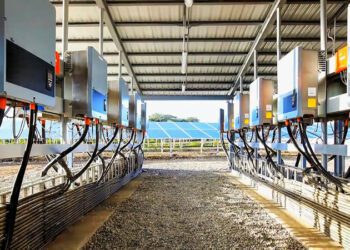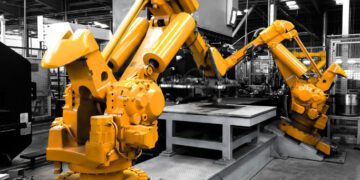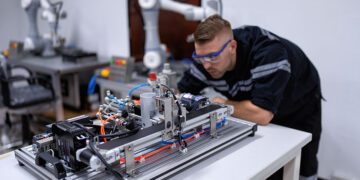The age of digital transformation is having profound impacts across industries, and the field of supply chain management (SCM) is no exception. Modern technologies, from artificial intelligence (AI) to blockchain, are revolutionizing how products are sourced, produced, and delivered to the end consumer. This article delves into the influence of technology on the future of SCM, outlining key technological trends and their potential impacts.
Artificial Intelligence and Machine Learning
AI and Machine Learning (ML) are paving the way for intelligent supply chain management. These technologies can process vast amounts of data to generate insights and make predictions. They are used in demand forecasting, inventory management, and logistics planning, among others.
For instance, AI algorithms can accurately predict customer demand based on historical data and market trends, helping businesses to optimize their inventory levels and reduce costs associated with overstocking or understocking. Similarly, ML can optimize route planning for logistics, reducing fuel consumption and delivery times.
Internet of Things (IoT)
The IoT is a network of interconnected devices that communicate and exchange data. In the realm of SCM, IoT devices such as GPS trackers, RFID tags, and sensors provide real-time visibility into the location and condition of goods throughout the supply chain.
IoT technology helps in monitoring the status of assets, tracking shipments, and managing inventory. It can also identify potential issues such as delays, damages, or changes in environmental conditions, allowing for proactive action to mitigate supply chain disruptions.
Blockchain Technology
Blockchain, a decentralized and secure digital ledger system, holds immense potential in enhancing transparency and traceability in supply chains. It provides a secure way of recording and verifying transactions, which can be particularly useful in managing complex supply chains.
Blockchain can help authenticate product origin, ensure compliance with regulations, prevent counterfeiting, and enable secure and efficient transactions. It also promotes accountability and trust among supply chain stakeholders by providing a single, immutable source of truth.
Autonomous Vehicles and Drones
The advent of autonomous vehicles and drones is set to revolutionize logistics and last-mile delivery. These technologies can automate the transport and delivery of goods, potentially increasing efficiency and reducing costs associated with labor and fuel.
Autonomous vehicles can operate round the clock and are immune to factors such as driver fatigue, which can lead to accidents. Drones, on the other hand, can deliver products to remote or hard-to-reach areas, providing an innovative solution for last-mile delivery challenges.
Robotics and Automation
Robots and automated systems are increasingly being used in warehouses and distribution centers for tasks such as picking, packing, and sorting. Automation enhances efficiency, reduces human error, and can lead to significant cost savings in the long run.
Furthermore, the integration of robots with AI and ML capabilities enables them to learn and improve their operations over time, further enhancing their efficiency and effectiveness.
Digital Twins
A digital twin is a virtual replica of a physical entity and can be used to simulate, predict, and optimize systems. In SCM, digital twins can model supply chain processes, helping managers to identify bottlenecks, simulate the impacts of different scenarios, and optimize operations.
Conclusion
As these technological advancements continue to mature, supply chains are likely to become more intelligent, autonomous, and efficient. However, the digital transformation also brings new challenges, such as cybersecurity threats, data privacy issues, and the need for new skills and competencies. Therefore, successful supply chain management in the digital age requires not only embracing these technologies but also addressing these accompanying challenges.




















